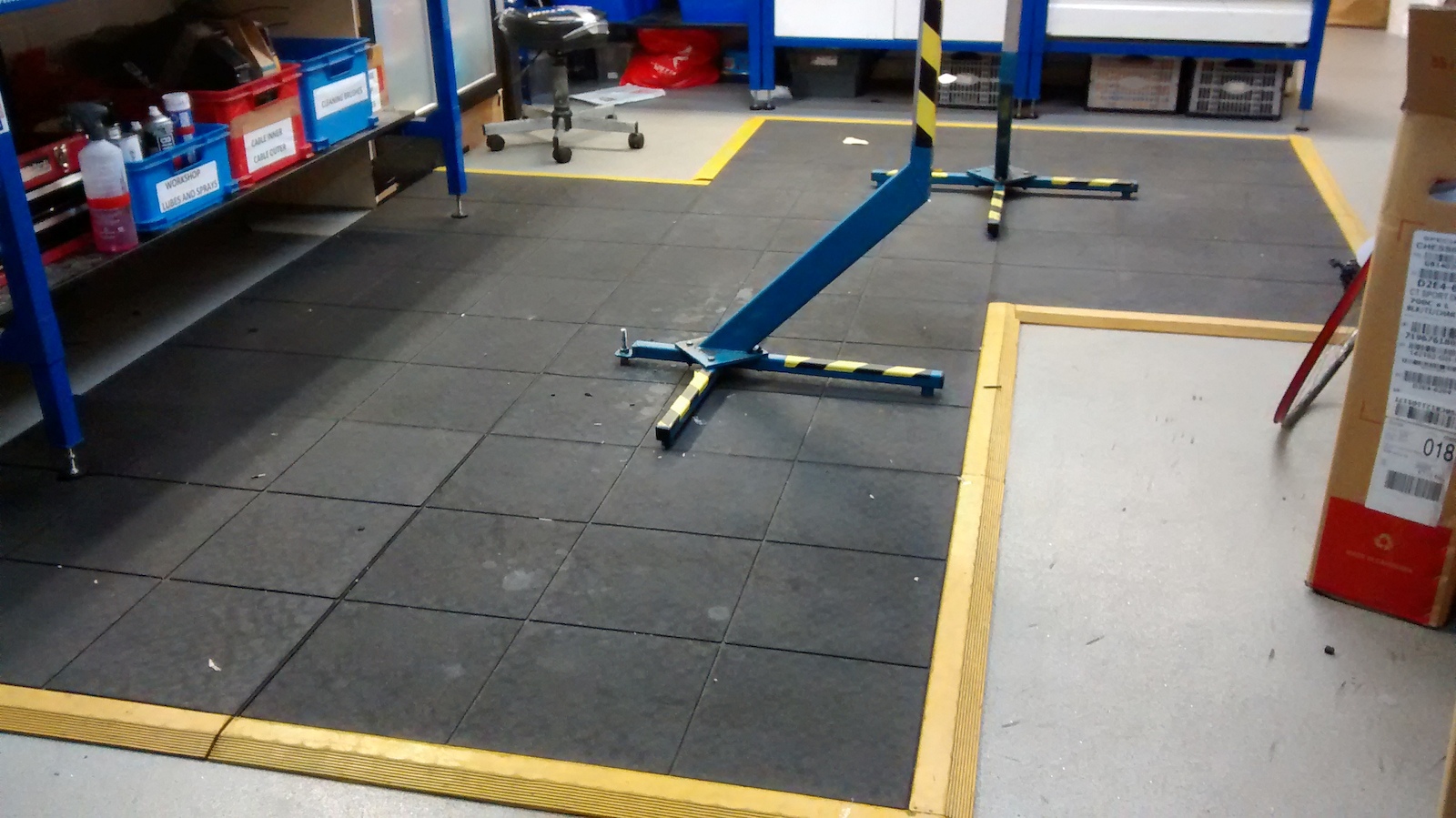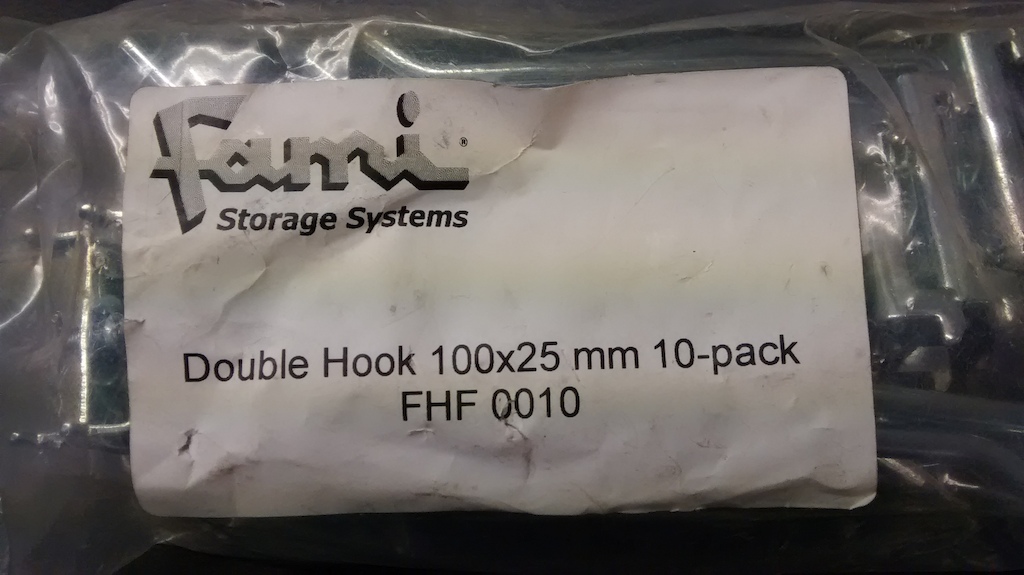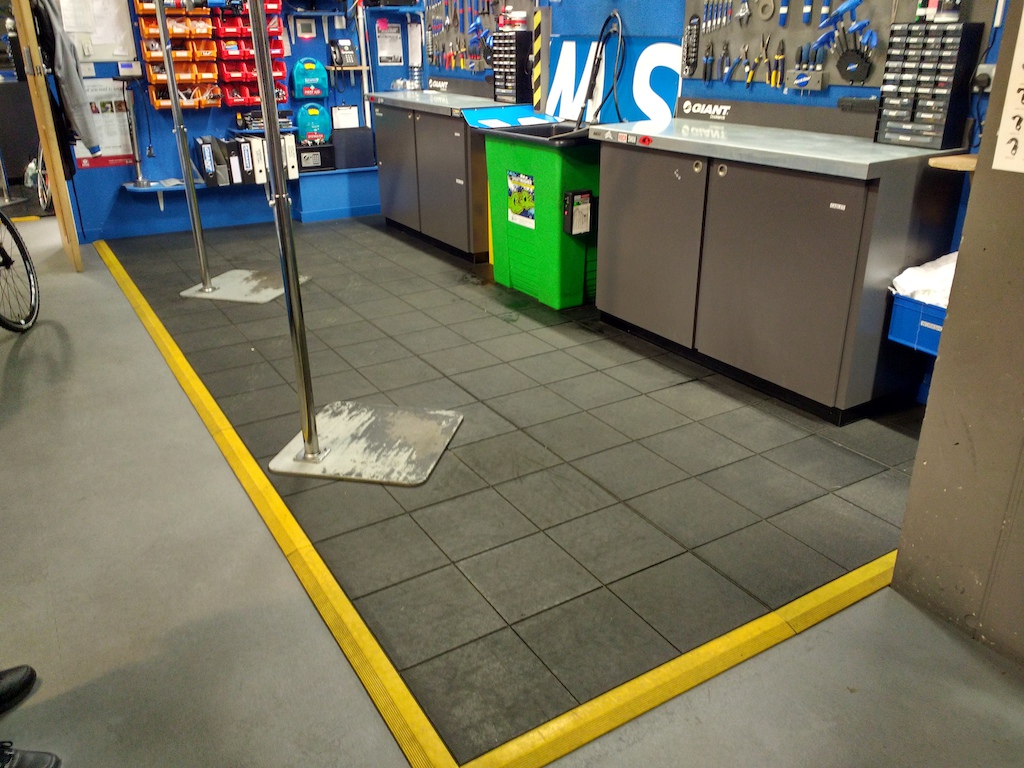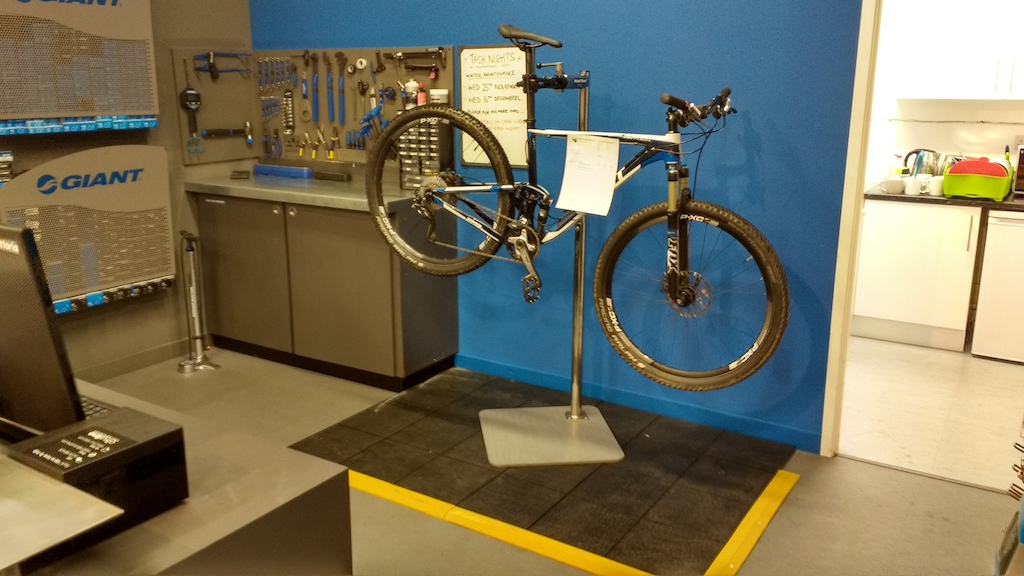Home › Forums › Bike Forum › Workshop flooring help
- This topic has 20 replies, 14 voices, and was last updated 8 years ago by neilwheel.
-
Workshop flooring help
-
mansonsoulFree MemberPosted 8 years ago
Hello everyone!
I’m putting together a new workshop. I’ve got a space with an interior that is clad entirely in OSB sheeting. I need some advice on a floor covering to protect it from welding (MIG) and brazing (oxy-acetylene).
I can’t remove the OSB sheeting (it’s not my structure to change radically) so I was thinking of those interlocking floor tiles, but I can’t find any specs of heat resistance. Any advice? Suggestions?
stumpyjonFull MemberPosted 8 years agoI’ve got plastic interlocking floor tiles from screwfix but given how much they expand in direct sunlight I’d seriously doubt they’d be any good for what you want.
bencooperFree MemberPosted 8 years agoSafety step aluminium? Not cheap, but it’ll be fine for protecting against dropped hot things.
eshershoreFree MemberPosted 8 years agothese are bombproof, have installed these in past 4 workshops I’ve built for bike shops

 mansonsoulFree MemberPosted 8 years ago
mansonsoulFree MemberPosted 8 years agoGiven how slick that is, im gonna guess you’ve not done much welding and shonky metalwork in there! Bloody lovey though!
eshershoreFree MemberPosted 8 years agono welding but plenty of angle grinding, drilling (sometimes through the matting by accident) and constant exposure to degreasers, oils, etc.
nicest thing is its really comfortable to kneel on whilst working low
mansonsoulFree MemberPosted 8 years agoThanks for that esher, thats really helpful. Hardiebacker… That’s interesting. Non combustible…
panzerjagerFree MemberPosted 8 years agoMansonsoul,
Not sure where you live, but that Slip-Not matting suggested by Esher Shore is less than £14 per tile inc. VAT at Trago Mills, down our way.
They have stores at Newton Abbot &, I think Launceston, in Devon & Cornwall respectively.
Not sure if that helps you?
I was looking at it last weekend, for exactly the same purpose.
maccruiskeenFull MemberPosted 8 years agoIf you need to just protect the existing OSB I’d just stick a layer of T&G chipboard over it and a coat of floor paint. If you’re welding and grinding then a nice slick surface thats easy to sweep up is helpful. I put a painted chip floor down in my workshop as the existing old concrete was too rough and oily to be able to sweep up well. You can just lay the boards loose and paint, not need to fix down to the floor beneath. I painted mine a pale grey so that I can use them as an additional work surface, mark out and large jobs on the floor (gates and railings, public sculptures etc) with a sharpy, screw jigs in place etc, and as a sacrificial surfaces so that it doesn’t matter if you catch the floor with the grinder when cutting. Then afterwards just paint over it ready for the next job. If they get too gubbed you can then just flip the boards over and paint the other side.
 benpinnickFull MemberPosted 8 years ago
benpinnickFull MemberPosted 8 years ago@esher_shore those white cabinets are nice looking – who makes them if you don’t mind me asking?
mansonsoulFree MemberPosted 8 years agoThanks panzerjager, I’ve got some family Newton Abbot way, that could be handy.
Anyone know what actual fabrication shops might use on their floors? I thought welders could blow big holes in concrete if you catch the floor, so just assumed it would be covered with something else.
nickjbFree MemberPosted 8 years agoPretty much every metalworkers I’ve visited, and it is quite a few, has had a concrete floor that was painted or bare. Maybe some anti fatigue matting. None of them have looked anything like the pics from esher_shore even in the office.
mansonsoulFree MemberPosted 8 years agoI’ve been looking at the anti-fatigue matting too. Definitely not imagining a setup like eshershores!
nibbyFree MemberPosted 8 years agoSorry to hijack the thread! I’ve been looking for some matting myself for the garage. No cars but a few bikes pedal and moto and tools.
Anyone had any experience with the stuff below? It says it’s supposed to be for a garage and says it can take heavy load etc but it’s a lot cheaper than the rubber stuff, which perfect for my budget.
Cheers
andysredminiFree MemberPosted 8 years agoI have 4.5mm aluminium treadplate on the floor in my 5m x 3m workshop/shed. It was offcuts from work and I cut it up into 300mm square tiles. Its fine for welding on as the splatter doesn’t attach itself to it. The only problem I find is if you drop a nut,bolt etc. you will never find the sucker.
OnzadogFree MemberPosted 8 years agoNibby, I’m looking at the same stuff. I’m after something in grey g give me half a chance of seeing what I drop.
nibbyFree MemberPosted 8 years agoOnzadog, good idea, never thought of that. Tell me how you drop something and it end’s up 10 ft away though 🙂
works out a lot cheaper.
eshershoreFree MemberPosted 8 years agoI believe its an Italian brand “Fami”, not 100% sure because they were installed before I rebuilt the workshop at Sigma Sport, but these are hooks from the same company / system
 eshershoreFree MemberPosted 8 years ago
eshershoreFree MemberPosted 8 years agothe best thing about the slip-not matting is it comes in 3′ x 3′ interlocking squares and can be trimmed using a stanley knife and metal edge to custom fit your layout.
in the photo below I’ve trimmed the edges to fit around the cabinets which were already mounted to the floor. the yellow edging strip is also trimmable to suit.

if flooring gets damaged you can remove a 3 x 3 section and cheaply replaced; the floor in the image above is 20 months old and has a proper battering (you can see the paint peeling on the workstand bases) but not had to replace any tiles yet. I wash the floor twice a week with detergent / bleach to get it “clean”
we always have spare tiles just in case, which also allowed me to do a smaller mat for our workshop reception, it was originally built with hard plastic tile flooring which was ruined after 16 months of trading and required regular steam cleaning
 neilwheelFree MemberPosted 8 years ago
neilwheelFree MemberPosted 8 years agoSmooth concrete is best for large fabrications, you can lay out and tack up on the floor then stand up or lift onto trestles for final welding.
I would go with the sacrificial layer of T&G chipboard as above. If you have repetitive cutting or a specific welding bench then put something more durable in those places.
The topic ‘Workshop flooring help’ is closed to new replies.
